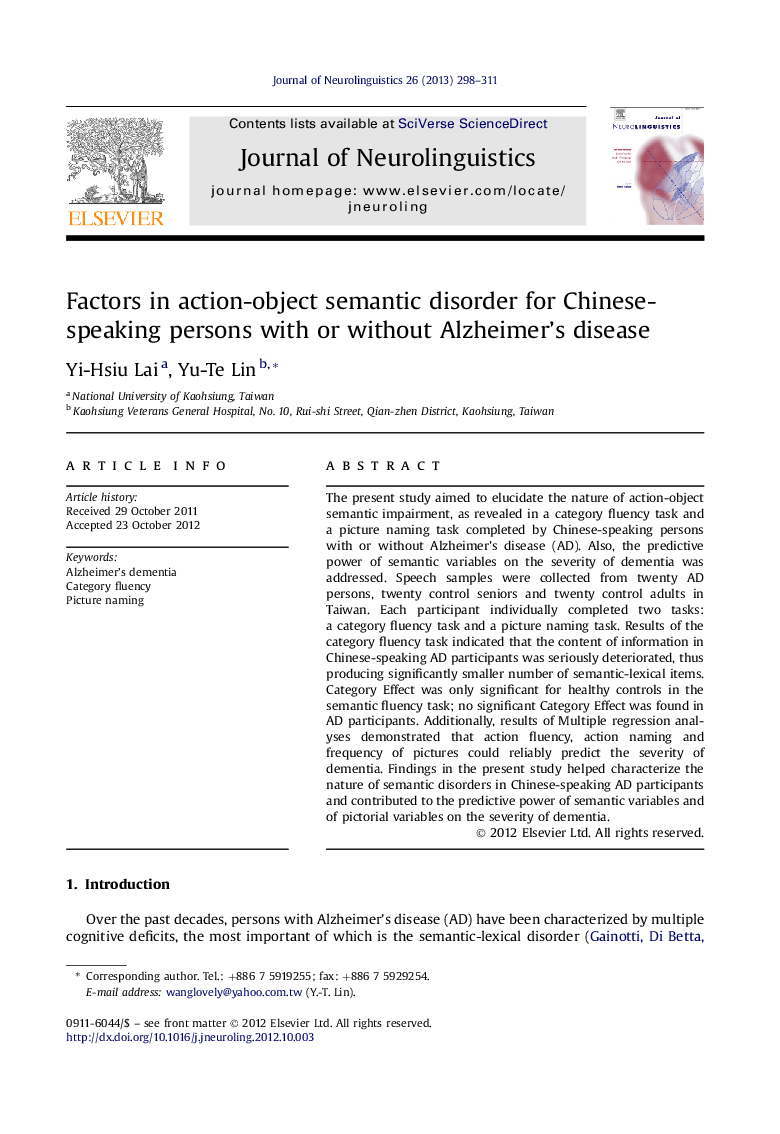| Article ID | Journal | Published Year | Pages | File Type |
|---|---|---|---|---|
| 911856 | Journal of Neurolinguistics | 2013 | 14 Pages |
The present study aimed to elucidate the nature of action-object semantic impairment, as revealed in a category fluency task and a picture naming task completed by Chinese-speaking persons with or without Alzheimer's disease (AD). Also, the predictive power of semantic variables on the severity of dementia was addressed. Speech samples were collected from twenty AD persons, twenty control seniors and twenty control adults in Taiwan. Each participant individually completed two tasks: a category fluency task and a picture naming task. Results of the category fluency task indicated that the content of information in Chinese-speaking AD participants was seriously deteriorated, thus producing significantly smaller number of semantic-lexical items. Category Effect was only significant for healthy controls in the semantic fluency task; no significant Category Effect was found in AD participants. Additionally, results of Multiple regression analyses demonstrated that action fluency, action naming and frequency of pictures could reliably predict the severity of dementia. Findings in the present study helped characterize the nature of semantic disorders in Chinese-speaking AD participants and contributed to the predictive power of semantic variables and of pictorial variables on the severity of dementia.
► We elucidated the nature of semantic impairment in a category fluency task. ► We examined the semantic category effects in a picture naming task. ► Our findings shed light on the predictive power of semantic variables on the severity of AD. ► Our findings are of theoretical and clinical implications for AD persons.
